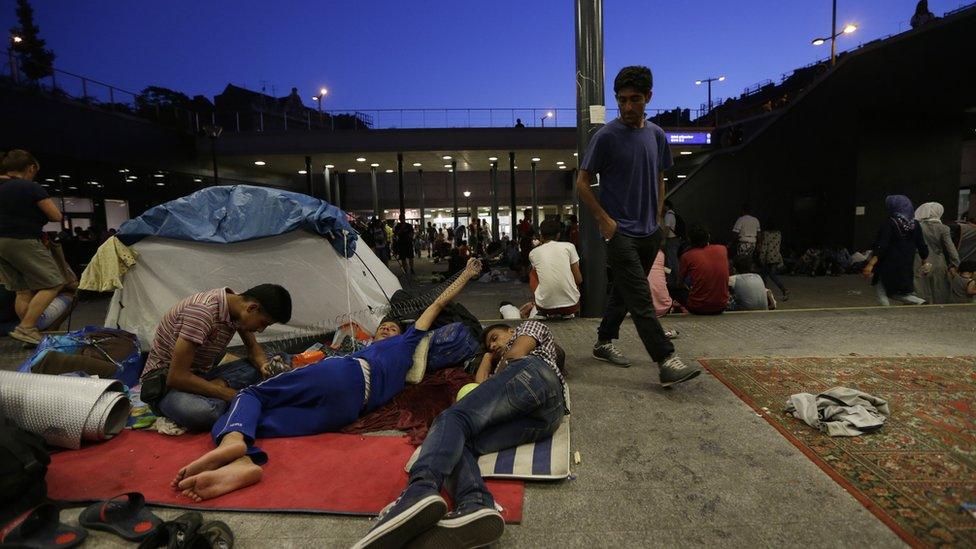What impact will migrant crisis have on UK's EU deal?
- Published
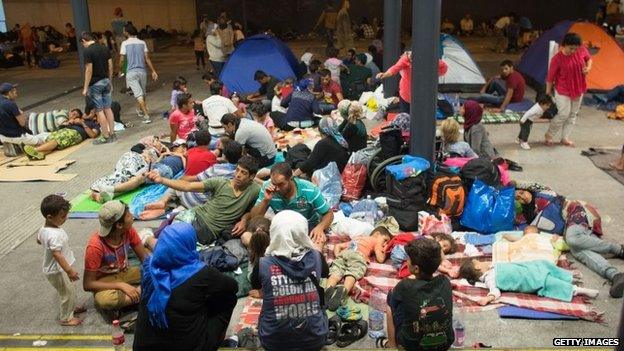
Hungary is the latest country to be affected by a surge of migrants as they set up camp in Budapest
The anguish of the EU's summer of migration feels rather far away as political business grinds back into gear in the UK.
The horror of what's been happening across other parts of the EU is now a depressingly familiar sight on our TV screens, but the UK, not part of the rest of the union's rules on immigration or asylum, has not been at the sharp end.
But given the intensity of the crisis, it is hard to see how it won't have an impact on the UK's hopes and desires for the renegotiation of our relationship with the EU.
It was never going to be simple, and the ways it might play out are hard to predict. Already though there are signs of impact.
'Catalogue of demands'
First and most straightforwardly, there is no question those pushing for EU exit will put immigration and the chaos of this summer's events at the centre of their campaign to leave.
Nigel Farage made no bones about that on Tuesday, warning of movement of people of "biblical proportions".
Second, David Cameron might find himself presented with rather blunt demands to give something in return for his referendum wish-list.
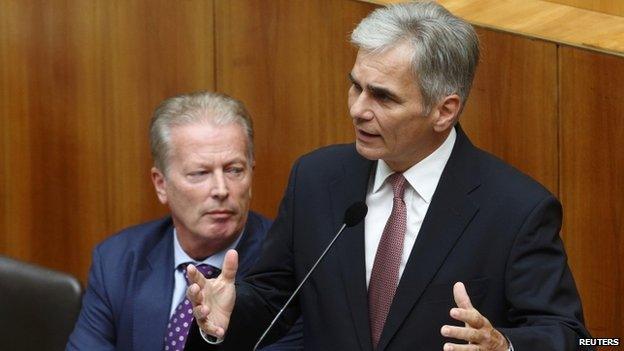
Mr Faymann said that Austria would also have demands
As Austrian Chancellor Werner Faymann said: "There is always someone in every country who needs something.
"When I think of David Cameron, he has a catalogue of demands which he wants to discuss with us by December which he then wants to use for his referendum.
"Well good, we are always ready to talk, we have our hands open, that is OK.
"We are a country that is open to the world, we don't want to shut ourselves away, we want to work together and co-operate, but we can also make demands.
"And we demand that the burden is equally shared."
'Strengthens UK hand'
Government sources say there will be no budging on refugees, but the Austrian leader is the first to tie the deal and the refugee crisis so directly together.
As David Cameron prepares to get back to negotiations with his EU counterparts, the Austrian might not be the last.
But, when the government started to pursue its case, it was a lonely voice in the EU wanting to talk about how people move across the continent.
Not any more. Of course the record levels of legal immigration here are entirely different to those fleeing war or extreme poverty in Africa or the Middle East to the EU.
But the fates of both are affected by the principle of freedom of movement, something the UK is no longer alone in wanting to discuss.
One Whitehall official told me in fact "the migration crisis strengthens the UK's negotiating hand on the general principle of reinterpreting freedom of movement".
Although the UK has not been at the sharp end of this summer's crisis, it is clear it will shape the progress of David Cameron's plans and of the referendum debate.
- Published1 September 2015
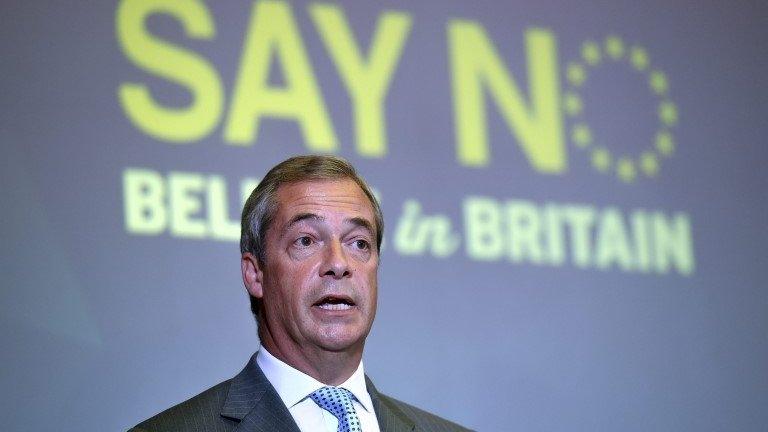
- Published20 February 2016
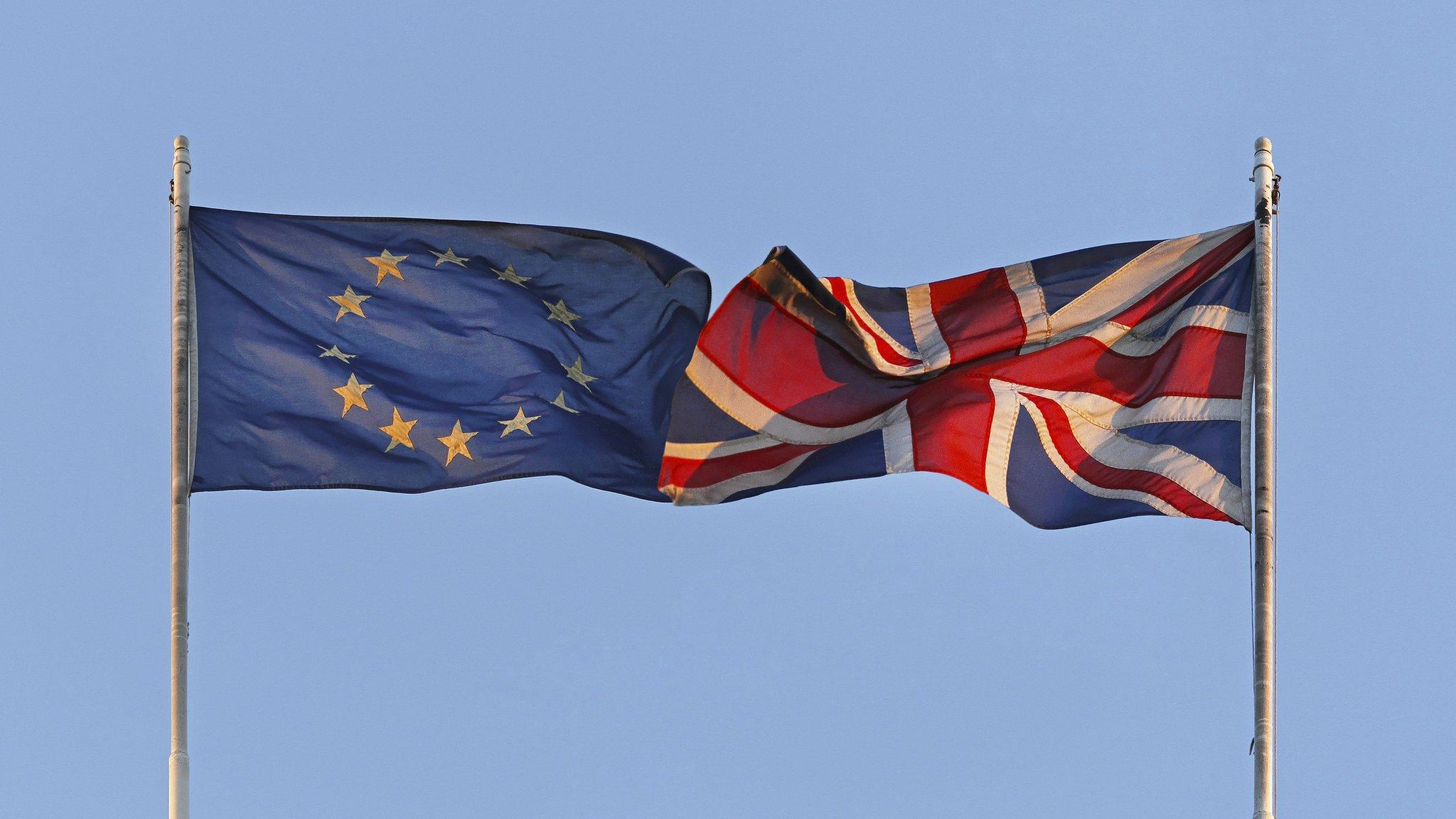
- Published26 May 2016
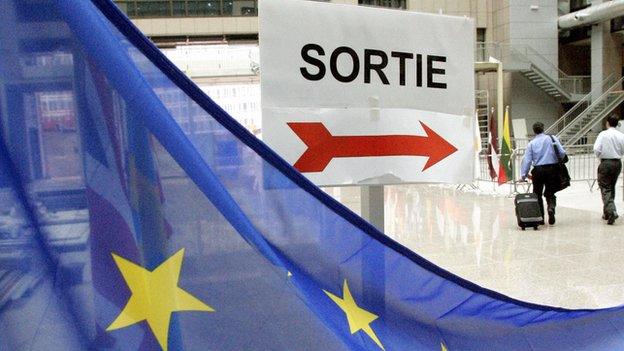
- Published1 September 2015
